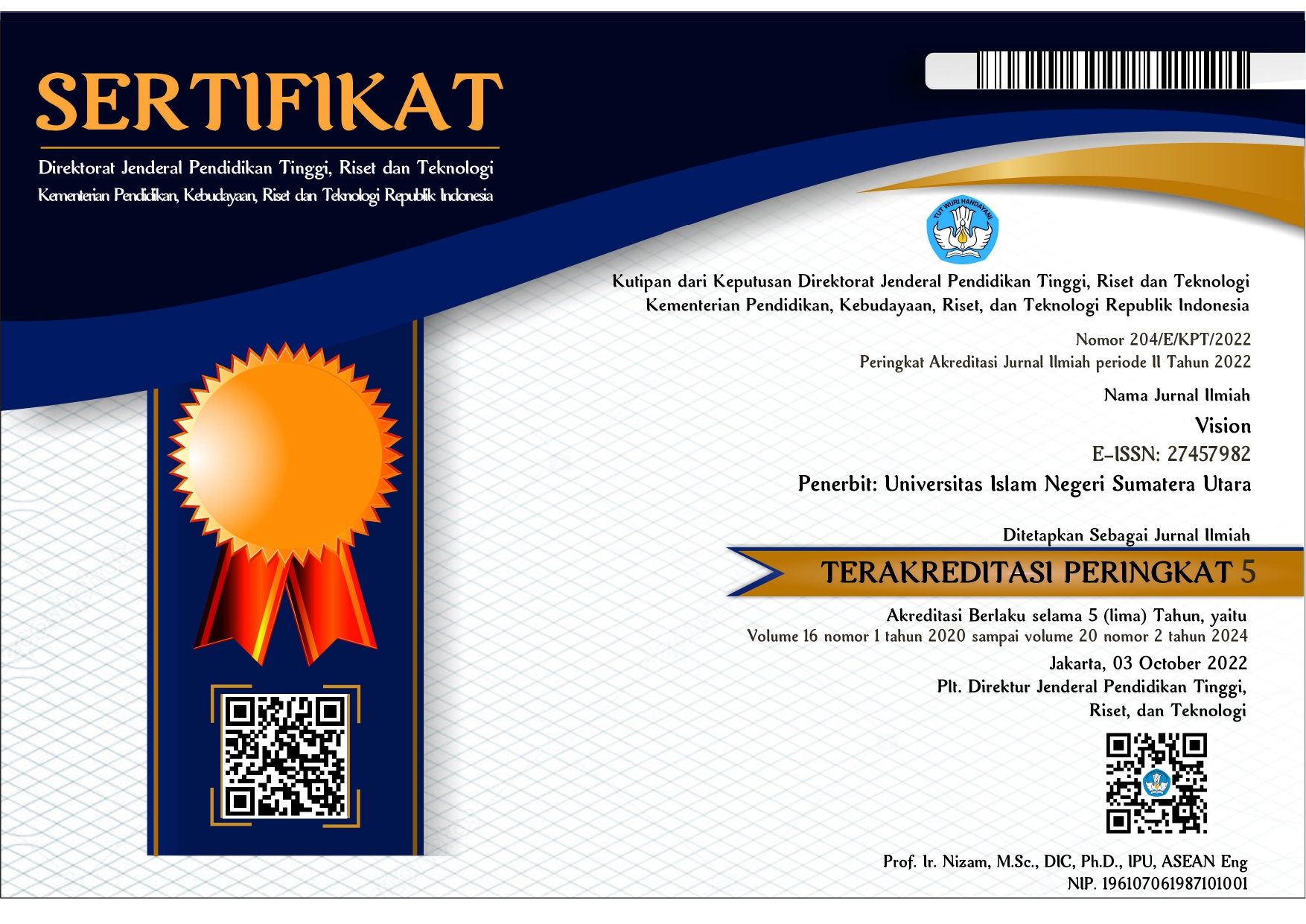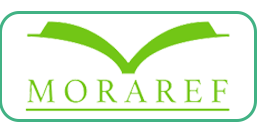THE EFFECT OF WORD WEBBING TECHNIQUE ON THE STUDENTS’ VOCABULARY MASTERY
Abstract
The objective of this study is to find out whether the students’ vocabulary mastery thaught by word webbing technique is better than without word webbing technique. The method of this research was quantitative with the experimental research design. The population of this study was the 48 students at seventh grade of SMP Swasta Galih Agung with two groups, experimental class consists of 21 students and control class consists of 27 students. The researchers taught the experimental class by using word webbing technique and control class taught without using word webbing technique. To collect the data the researchers used vocabulary test in multiple choice as the instrument. The post-test was given by the researchers after
giving the treatment. The data were calculated by using t-test formula with the degree freedom (df) = 46 at the level of significance 0.05. it was found that t
count value was 10,491 and t table was 2,000. After analyzing the data, it was found that t count is higher than t table. It means that Ha is accepted and Ho is rejected. It can be concluded that the students’ vocabulary mastery taught by word webbing technique is better than without word webbing technique.
Full Text:
PDFReferences
Asyiah, D. N. (2017). THE VOCABULARY TEACHING AND VOCABULARY LEARNING: PERCEPTION, STRATEGIES, AND INFLUENCES ON STUDENTS'VOCABULARY MASTERY. Jurnal Bahasa Lingua Scientia, 9(2), 293-318.
Alqahtani, M. (2015). The importance of vocabulary in language learning and how to be taught. International journal of teaching and education, 3(3), 21-34.
Battu, R., & Beesupogu, V. (2015). Enhancing the Regional Medium Students’ Vocabulary Using Self-Directive Learning Techniques. American Research Journal of English and
Literature, 1.
McCarten, J. (2007). Teaching Vocabulary: Lesson from Corpus Lesson for the classroom. New York: Cambridge University Press.
Nasution, A. D. N. (2015). The Effect of Applying Word Webbing Technique on Students’Vocabulary AchievementI. Thesis. State
University of Medan.
Priyono.(2004). Logical problems of teaching English as a foreign Language in Indonesia. Malang: State University of Malang Press.
Richards, J. C. and Rodgers, T. S. (1986). Aproaches and Methods in Language Teaching. London: Cambridge University Press.
Santoso, D. (2011). THE EFFECT OF INSTRUCTIONAL APPROACHES AND LEARNING STYLES ON ENGLISH SPEAKING SKILLS. Jurnal Teknologi Pendidikan, 4(1), 1-16.
Thornbury, S. (2002). How to Teach Vocabulary. Longman: Pearson Education Limited.
Dwi, W. U., & Fithriyah, N. H. M. P. (2017). THE EFFECTIVENESS OF USING WORD MAPPING STRATEGY IN TEACHING VOCABULARY (An Experimental Study at theSeventh Grade Students of SMP Negeri 1 Plupuh Academic Year 2015/2016) (Doctoral dissertation, IAIN Surakarta).
Zarei, A. A., & SahamiGilani, M. (2013). L2 vocabulary learning through collaborative techniques. International Journal of Language Learning and Applied Linguistics World, 4(1),
-84.
Zawil, R. (2016). Using make a Match Technique to teach vocabulary. English Education Journal, 7(3), 311-328.
DOI: http://dx.doi.org/10.30829/vis.v16i2.812
Refbacks
- There are currently no refbacks.
Copyright (c) 2020 VISION
















